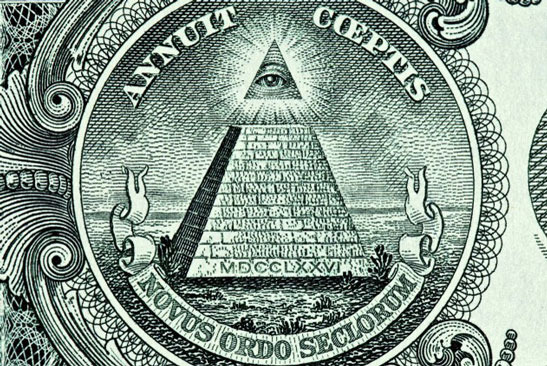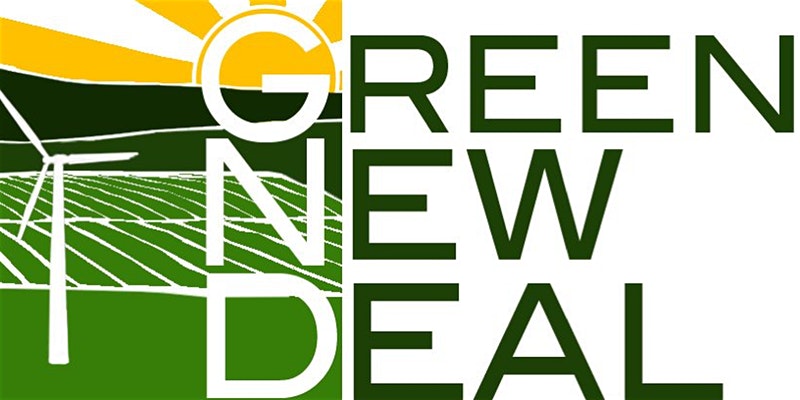|
Sun | Mon | Tue | Wed | Thu | Fri | Sat |
|---|
December | December | December | 1 | 2 - Comparative Capitalism
Session 1 6:30 pm-8:30 pm 2020.01.02 149 East 38th Street, New York, NY 10016  COMPARATIVE CAPITALISMIn this course, we present variations of modern capitalism by comparing and contrasting the dominant model to its other counterparts. The word capitalism lends itself to broad generalizations that highlight the importance of private property and free markets as the supreme arbitrator of economic outcomes. However, national trajectories give form to many varieties, suggesting that history, culture and institutions do play a major role in shaping markets and organizing society. In this five-session course, we present cross-country variations of modern capitalism by comparing and contrasting the dominant Anglo-American model to its other counterparts. Instructor: Michael Bucher
Dates: Thursdays: 1/2, 1/9, 1/16, 1/23, 1/30
Time: 6:30 PM – 8:30 PM 5 sessions
Registration fee: $5
Payment or proof of payment must be provided at first session.
| 3 | 4 |
5 | 6 - MONEY AND BANKING
Session 1 6:30 pm-8:30 pm 2020.01.06 149 East 38th Street, New York, NY 10016  This course will provide a set of tools to analyze the interaction between monetary policy, the real economy and the financial sector in general. The course will combine a study of the relevant theories with applications to recent events and policy debates. In this connection Henry George’s concept of money will be explored as well as the relations between finance and land markets. Instructor: Allen Smith
Location: 149 East 38th Street, New York, NY 10016
Time: 6:30 PM – 8:30 PM
Dates: Mondays, 1/6, 1/13, 1/27, 2/3, 2/10 Main Texts:
H. George, The Science of Political Economy, Part 5
R. Werner, Where does Money Come from
| 7 | 8 | 9 - Comparative Capitalism
Session 2 6:30 pm-8:30 pm 2020.01.09 149 East 38th Street, New York, NY 10016  COMPARATIVE CAPITALISMIn this course, we present variations of modern capitalism by comparing and contrasting the dominant model to its other counterparts. The word capitalism lends itself to broad generalizations that highlight the importance of private property and free markets as the supreme arbitrator of economic outcomes. However, national trajectories give form to many varieties, suggesting that history, culture and institutions do play a major role in shaping markets and organizing society. In this five-session course, we present cross-country variations of modern capitalism by comparing and contrasting the dominant Anglo-American model to its other counterparts. Instructor: Michael Bucher
Dates: Thursdays: 1/2, 1/9, 1/16, 1/23, 1/30
Time: 6:30 PM – 8:30 PM 5 sessions
Registration fee: $5
Payment or proof of payment must be provided at first session.
| 10 | 11 |
12 | 13 - MONEY AND BANKING
Session 2 6:30 pm-8:30 pm 2020.01.13 149 East 38th Street, New York, NY 10016  This course will provide a set of tools to analyze the interaction between monetary policy, the real economy and the financial sector in general. The course will combine a study of the relevant theories with applications to recent events and policy debates. In this connection Henry George’s concept of money will be explored as well as the relations between finance and land markets. Instructor: Allen Smith
Location: 149 East 38th Street, New York, NY 10016
Time: 6:30 PM – 8:30 PM
Dates: Mondays, 1/6, 1/13, 1/27, 2/3, 2/10
Main Texts:
H. George, The Science of Political Economy, Part 5
R. Werner, Where does Money Come from
| 14 | 15 - The Green New Deal – What is it and How do we Pay for it?
Seminar 6:30 pm-8:30 pm 2020.01.15 149 East 38th Street, New York, NY 10016  The Green New Deal – What is it and How do we Par for it?Join us for an interactive panel on the Green New Deal – the bold and radical plan to transform the American economy. A radical plan to decarbonize our economy and address climate change commonly known as the New Green Deal is becoming a hot public policy issue in America. But questions as to what the Green New Deal really is, and whether we could afford it; do not always command easy answers and generally tend to arouse the most passionate controversies. This panel of distinguished speakers will present three different takes on the Green New Deal and, ask whether it holds the potential for transitioning the US economy towards a greener and more sustainable future.
Tom Ballou, Senior Financial Analyst and faculty member of the Henry George School Marty Rowland, PhD., Licensed Environmental/Civil Engineer, Scholar in tradition of Henry George and Elinor Ostrom, and Trustee at the Henry George School James Keenan, Social Justice Advocate and co-founder of Abba Lerner-Hyman Minsky Political Economy Society Moderator: Ibrahima Drame, Director of Education at the Henry George School
Date: Wednesday, January 15th
Time: 6:30PM -8:00PM Registration fee: $5
Payment or proof of payment must be provided at event.
| 16 - Comparative Capitalism
Session 3 6:30 pm-8:30 pm 2020.01.16 149 East 38th Street, New York, NY 10016  COMPARATIVE CAPITALISMIn this course, we present variations of modern capitalism by comparing and contrasting the dominant model to its other counterparts. The word capitalism lends itself to broad generalizations that highlight the importance of private property and free markets as the supreme arbitrator of economic outcomes. However, national trajectories give form to many varieties, suggesting that history, culture and institutions do play a major role in shaping markets and organizing society. In this five-session course, we present cross-country variations of modern capitalism by comparing and contrasting the dominant Anglo-American model to its other counterparts. Instructor: Michael Bucher
Dates: Thursdays: 1/2, 1/9, 1/16, 1/23, 1/30
Time: 6:30 PM – 8:30 PM 5 sessions
Registration fee: $5
Payment or proof of payment must be provided at first session.
| 17 | 18 |
19 | 20 | 21 | 22 | 23 - Comparative Capitalism
Session 4 6:30 pm-8:30 pm 2020.01.23 149 East 38th Street, New York, NY 10016  COMPARATIVE CAPITALISMIn this course, we present variations of modern capitalism by comparing and contrasting the dominant model to its other counterparts. The word capitalism lends itself to broad generalizations that highlight the importance of private property and free markets as the supreme arbitrator of economic outcomes. However, national trajectories give form to many varieties, suggesting that history, culture and institutions do play a major role in shaping markets and organizing society. In this five-session course, we present cross-country variations of modern capitalism by comparing and contrasting the dominant Anglo-American model to its other counterparts. Instructor: Michael Bucher
Dates: Thursdays: 1/2, 1/9, 1/16, 1/23, 1/30
Time: 6:30 PM – 8:30 PM 5 sessions
Registration fee: $5
Payment or proof of payment must be provided at first session.
| 24 | 25 |
26 | 27 - MONEY AND BANKING
Session 3 6:30 pm-8:30 pm 2020.01.27 149 East 38th Street, New York, NY 10016  This course will provide a set of tools to analyze the interaction between monetary policy, the real economy and the financial sector in general. The course will combine a study of the relevant theories with applications to recent events and policy debates. In this connection Henry George’s concept of money will be explored as well as the relations between finance and land markets. Instructor: Allen Smith
Location: 149 East 38th Street, New York, NY 10016
Time: 6:30 PM – 8:30 PM
Dates: Mondays, 1/6, 1/13, 1/27, 2/3, 2/10
Main Texts:
H. George, The Science of Political Economy, Part 5
R. Werner, Where does Money Come from
| 28 | 29 | 30 - Comparative Capitalism
Session 5 6:30 pm-8:30 pm 2020.01.30 149 East 38th Street, New York, NY 10016  COMPARATIVE CAPITALISMIn this course, we present variations of modern capitalism by comparing and contrasting the dominant model to its other counterparts. The word capitalism lends itself to broad generalizations that highlight the importance of private property and free markets as the supreme arbitrator of economic outcomes. However, national trajectories give form to many varieties, suggesting that history, culture and institutions do play a major role in shaping markets and organizing society. In this five-session course, we present cross-country variations of modern capitalism by comparing and contrasting the dominant Anglo-American model to its other counterparts. Instructor: Michael Bucher
Dates: Thursdays: 1/2, 1/9, 1/16, 1/23, 1/30
Time: 6:30 PM – 8:30 PM 5 sessions
Registration fee: $5
Payment or proof of payment must be provided at first session.
| 31 | February |
